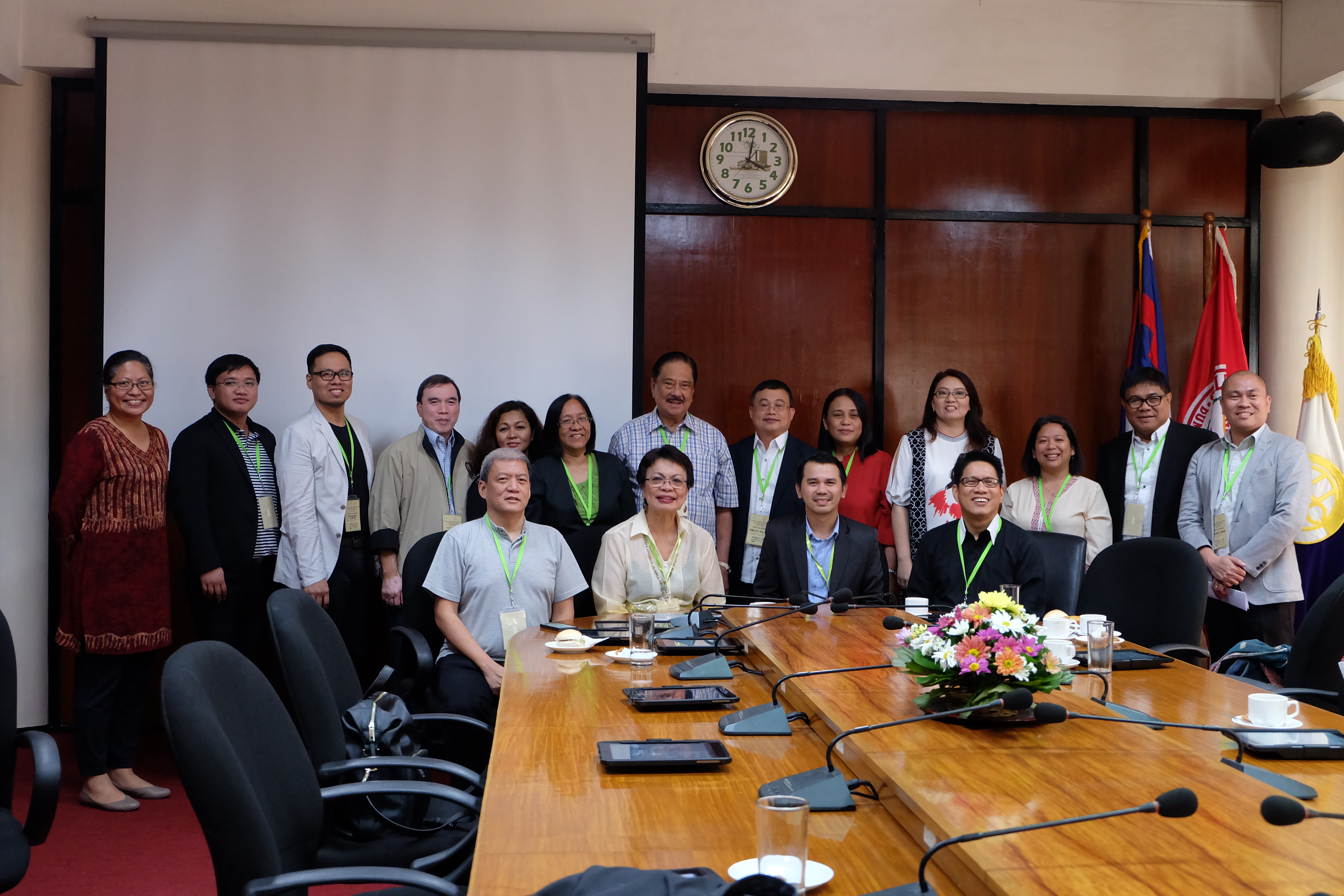
SU hosts national local knowledge conference
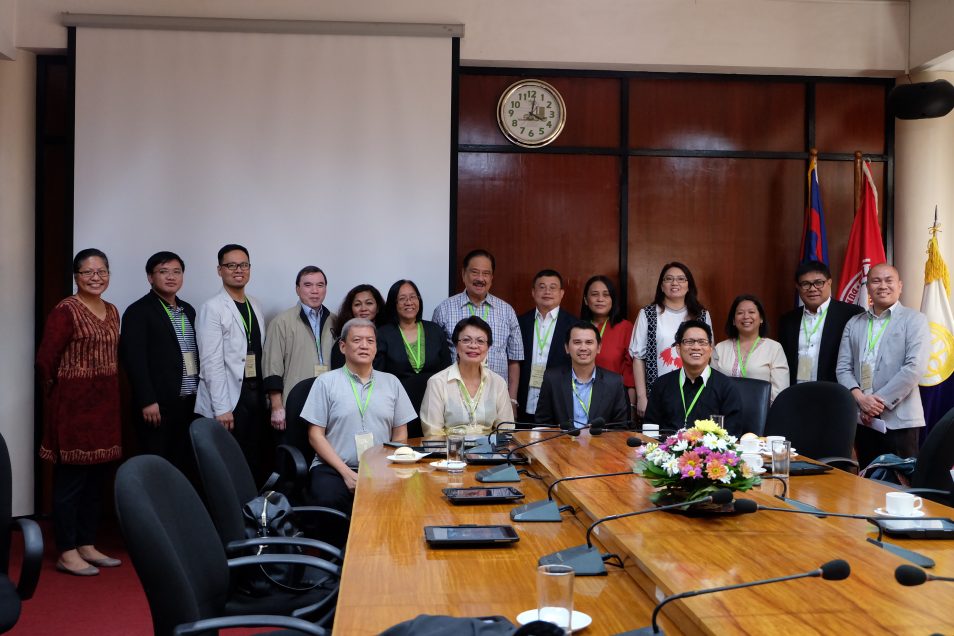
AUDRN Institutional Partners’ Meeting with School Presidents Feb. 8 at the SU Administration Board Room
Silliman University (SU) hosted researchers from 20 universities and colleges in the Philippines for the third Asian University Digital Resource Network (AUDRN) Local Knowledge National Conference and fifth Institutional Partners’ Meeting, Feb. 8-9.
AUDRN is an educational network of academic institutions and professionals in the Philippines and other Asian countries that serves as a “collaborative hub” to promote the discovery, rediscovery, and use of local knowledge in higher education using digital tools. It is funded under United Board for Christian Higher Education in Asia’s (UBCHEA) Local Knowledge Initiative program and started as a project between UBCHEA and Miriam College in 2009.
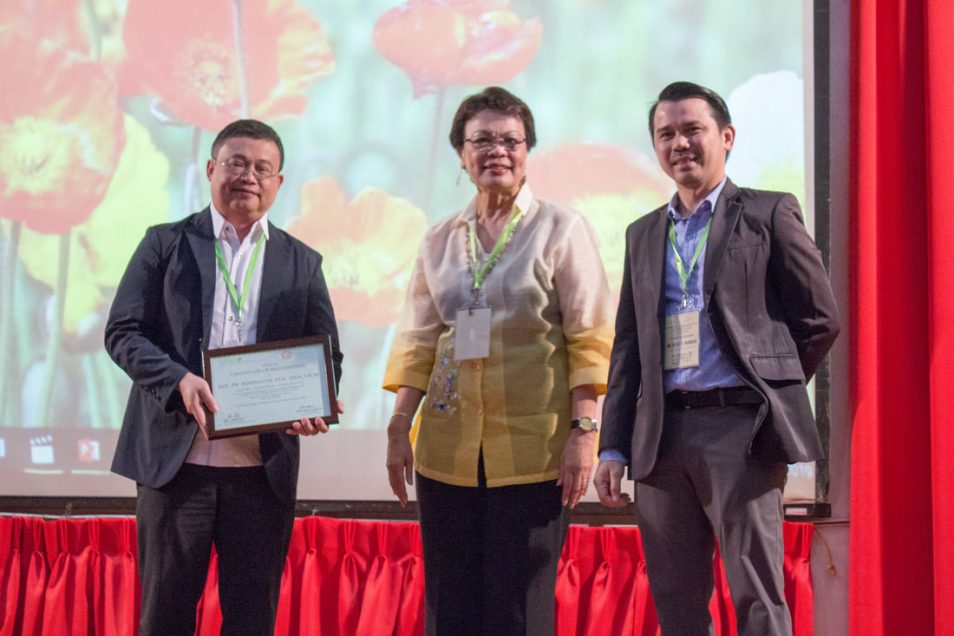
(L-R) Rev. Fr. Renillo Sta. Ana, University of Saint Louis Tuguegarao president, with Dr. McCann and Dr. Marcial after his presentation on “Local Knowledge in Education” during the Plenary 1 of the conference Feb. 8 at the Audio-Visual Theater 1.
AUDRN identified “Local Knowledge across Generations: Towards the 4th Industrial Revolution” as the theme for their 2019 conference and meeting, wherein local knowledge researchers, partners, advocates, champions, and digital technology researchers, strategists, planners, and developers gathered to share and discuss local knowledge integration in higher education using information and communication technology (ICT).
Research topics such as using ICT to preserve, share, integrate, and teach local knowledge were presented by participants from the following AUDRN member institutions: St. Paul University Dumaguete, Ateneo de Davao University, Father Saturnino Urios University, Angeles University, Notre Dame University, University of Saint Louis Tuguegarao, University of the Cordilleras, Notre Dame of Marbel University, University of Santo Tomas, Visayas State University, STI West Negros University, University of Batangas, Southern Christian College, Miriam College, University of San Carlos, Ateneo de Zamboanga University, De La Salle University – Dasmariñas, Central Philippine University, Notre Dame of Jolo College, and the University of St. La Salle.
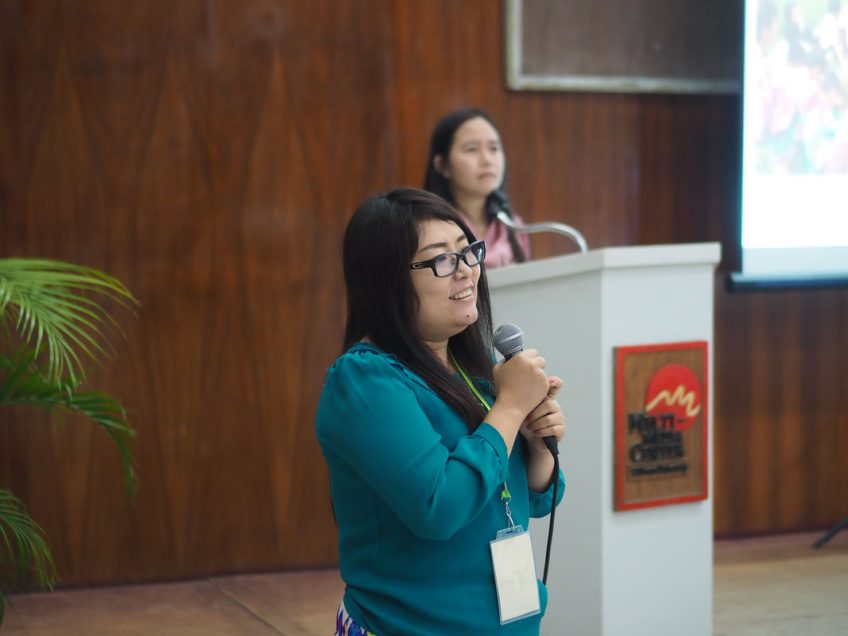
Bawm Lwi of Silliman University speaks on “ICT Competence Among Teachers: Inputs For Local Knowledge Integration in a Church-Based Mission School in Myanmar.”
UNESCO defines local, traditional, or indigenous knowledge as “understandings, skills and philosophies developed by societies with long histories of interaction with their natural surroundings” that, for rural and indigenous peoples, “informs decision-making about fundamental aspects of day-to-day life.” Local knowledge is an important facet in cultural diversity and provides a foundation for “locally-appropriate sustainable development.”
Moreover, AUDRN aims to integrate local knowledge in areas of instruction, research, extension and service-learning; advocate for the “legitimacy of local knowledge as academic and the recognition of local communities as legitimate sources of knowledge”; and contribute to social transformation by creating sustainable communities.
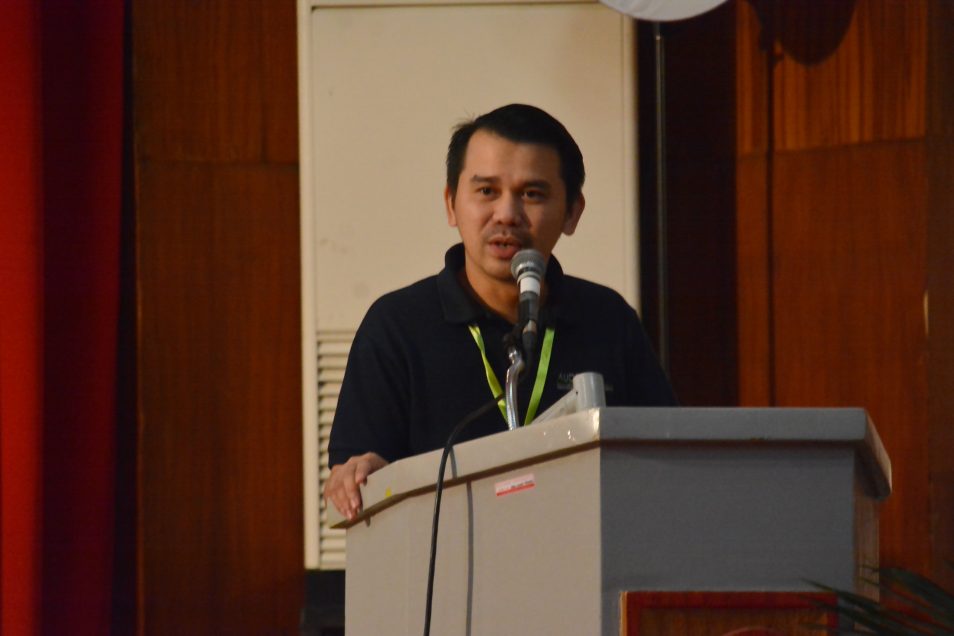
Dr. Dave E. Marcial, AUDRN-Local Knowledge executive director and SU College of Computer Studies dean, delivers the closing remarks Feb. 9 at the Audio-Visual Theater 1.
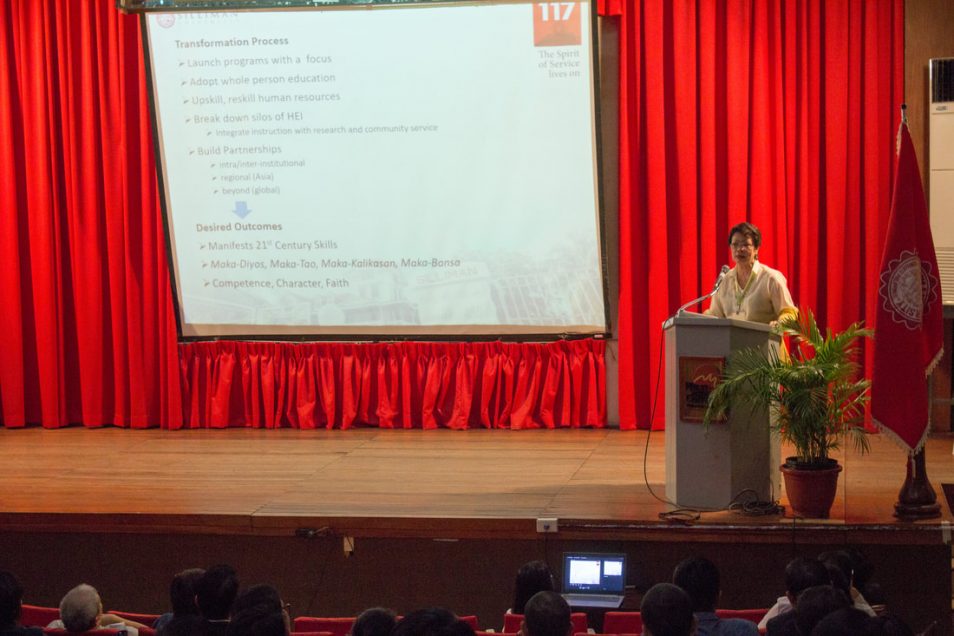
Dr. Betty C. McCann, SU president and former UBCHEA vice president for programs, delivers the keynote address at the opening of the conference Feb. 8 at the Audio-Visual Theater 1.
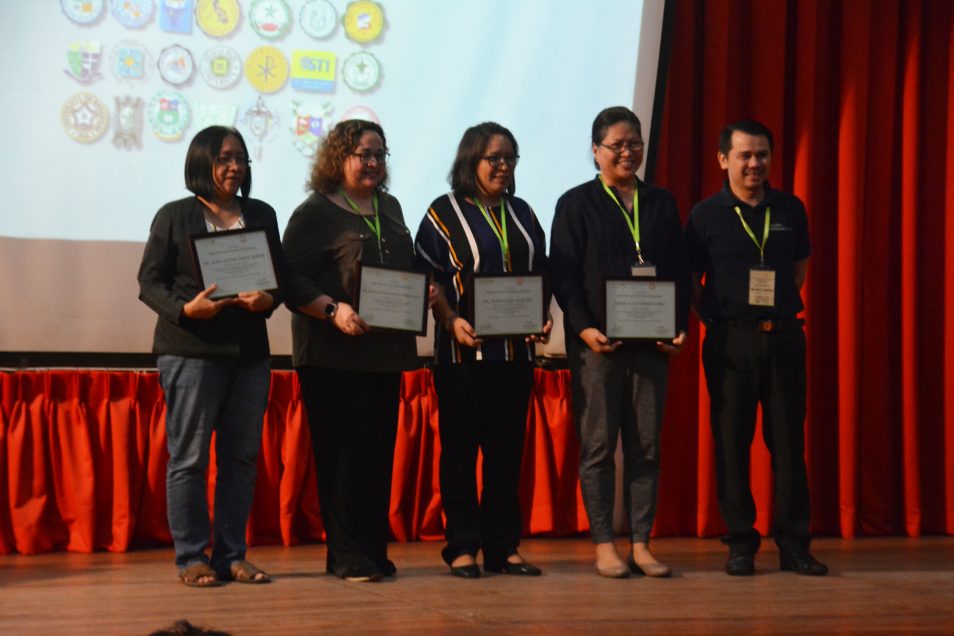
(L-R) Dr. Zona Hildegarde Amper, University of San Carlos associate professor; Dr. Abegayle Machelle Perez-Chua, University of Batangas vice president for academic affairs; Dr. Shirlene Alegre, Father Saturnino Urios University research director; and Ms. Sheila Lo Dingcong, moderator of the conference’s Plenary 3 that discussed “Best Practices in Local Knowledge Integration in the Curriculum,” with Dr. Marcial after the discussion.
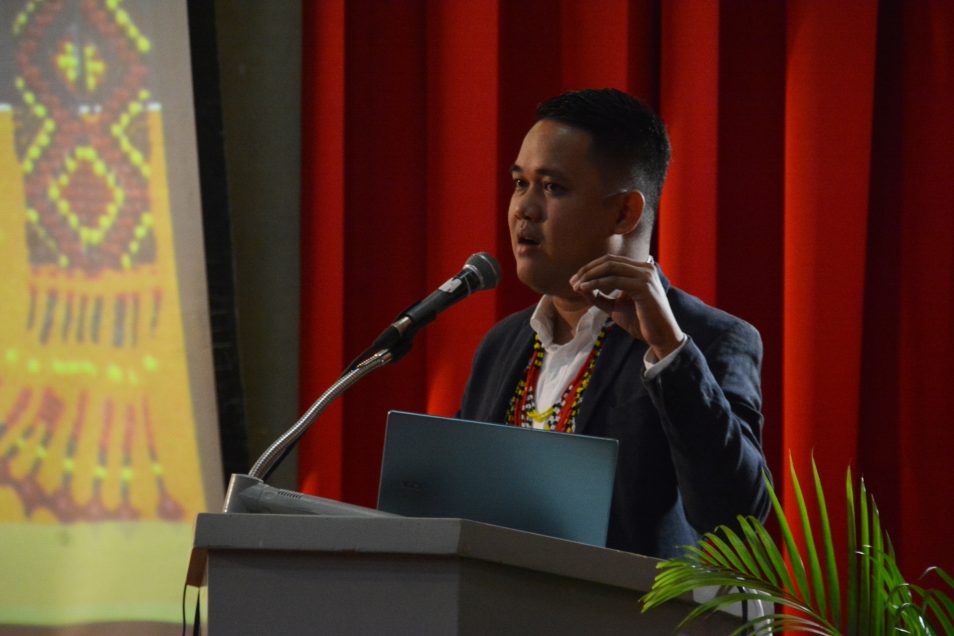
Ronald Allan Butalid of Father Saturnino Urios University on: “The Hakyadan of the Manobos in Agusan: A Video Documentation”
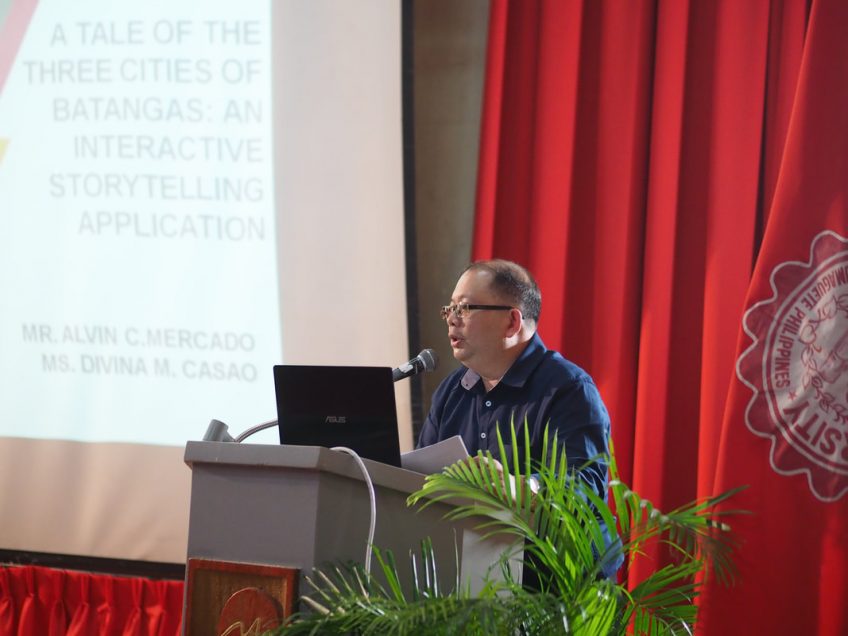
Alvin Mercado of University of Batangas on: “A Tale of the Three Cities of Batangas: An Interactive Storytelling Application”
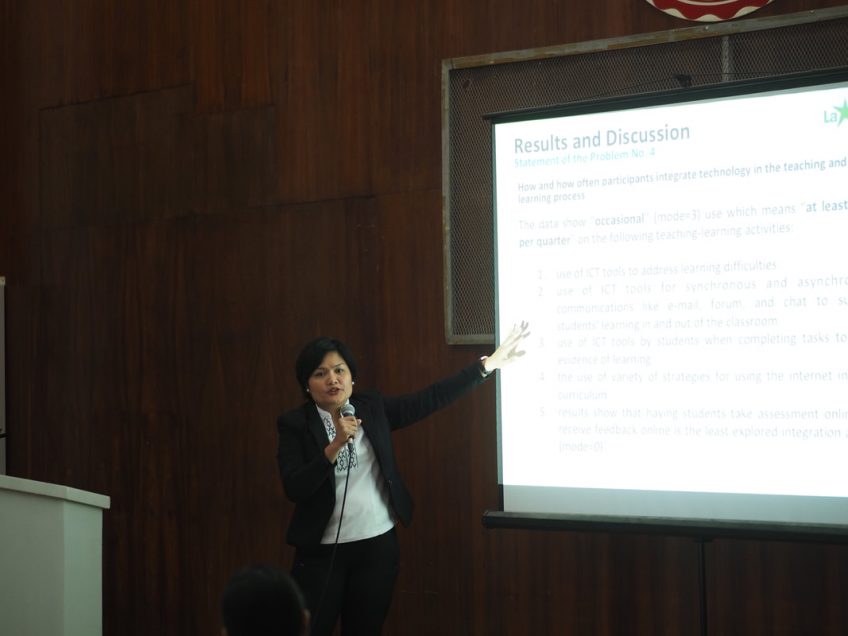
Annabelle Balor of University of St. La Salle on: “Technology Integration in the Teaching and Learning Process in a Higher Education Institution”
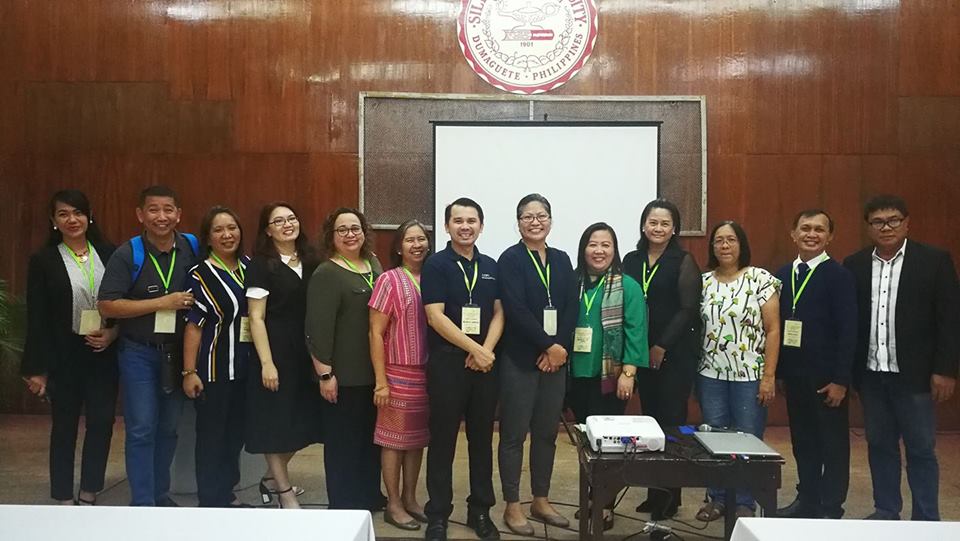
After the research presentations Feb. 9 at the Multi-Purpose Room.


